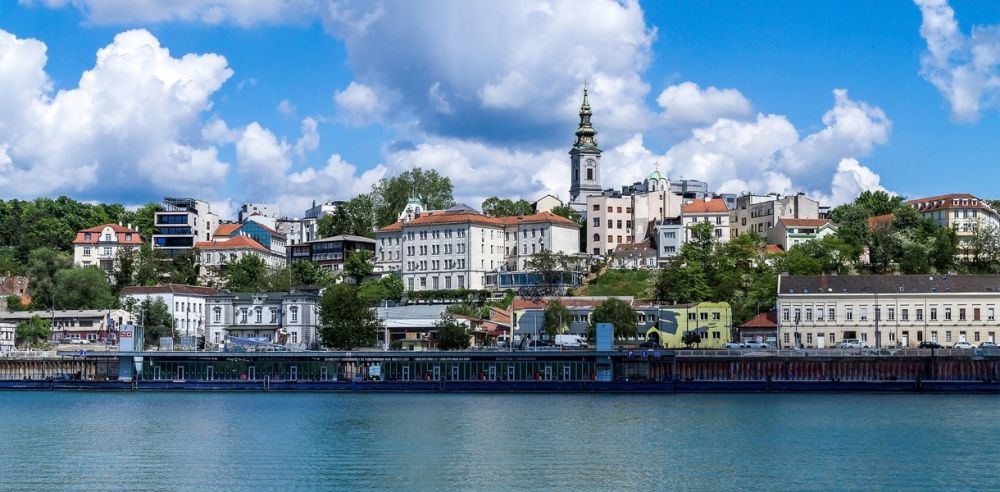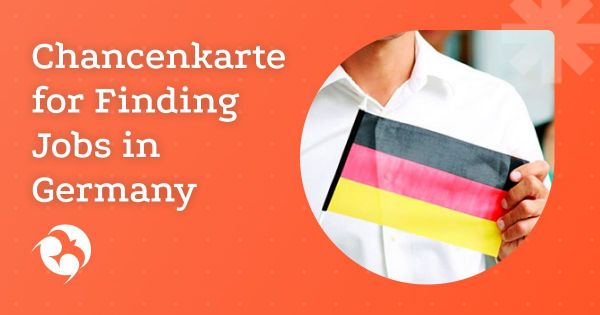The right step to obtaining a residence permit in Serbia through business begins with choosing a partner who knows the local nuances. Our team accompanies entrepreneurs at every stage: from company registration to applying for a residence permit. Quickly. Clearly. Without unnecessary fuss and misunderstandings.
Serbian migration legislation does not create unnecessary barriers for foreign businessmen. A citizen of almost any country can open a company here. Who is this path suitable for? Those who are determined to really conduct business. Registering “dormant” companies and being listed in a fictitious position will not work. There will be questions from the inspections, and as a result, this will lead to a refusal to extend the residence permit.
The Serbian Classifier (CA-2010) is open to almost any field, with the exception of licensed areas (finance, medicine, gambling). In practice, foreigners are more likely to choose:
- IT outsourcing and product development;
- consulting, marketing, design;
- distribution and export-import operations;
- light production and processing of agricultural products.
Two features simplify the start: the authorized capital can be deposited with money or property, and the company itself can be registered online in 1-3 days. Upon registration, the authorized capital can be symbolic – from 100 Serbian dinars. This probably puts Serbia in an advantageous position compared to EU countries, where a more substantial entry fee is often required.
Advantages and prospects of starting a business in Serbia
- An accessible registration procedure. You can create a company quickly, without unnecessary bureaucratic barriers.
- Minimum requirements for the authorized capital. A symbolic amount is enough to start (100 Serbian dinars).
- The ability to conduct almost any legal activity.
- A loyal tax system. The income tax rate is 15%, and there are simplified regimes for small businesses.
- Obtaining a residence permit, and in the future – the possibility of applying for permanent residence and citizenship.
- There is no mandatory requirement to invest or hire employees.
- Serbia has free trade agreements with a number of European countries, which facilitates exports and imports.
- Relatively low cost of living and doing business compared to Western European countries.
Key requirements
The start of the process is the registration of the company in Serbia. It is important that the company has a real address and that business activities can be documented. The future applicant is obliged to officially employ himself in his own company. This is exactly the point that allows you to legally apply for a residence permit.
The usual procedure requires submitting a package of documents to the Serbian police at the company’s registered office. The list of standard papers includes:
- passport;
- Serbian identification number (PIN);
- company registration documents;
- office lease agreement or confirmation of the availability of a workplace;
- income statement or availability of funds in the account.
An important point is the business plan. It does not need to be prepared in the form of an official presentation, but officials carefully evaluate the realism and economic sense of the activity. Registering a company does not require proof of innovation. Business registration usually takes 5-7 business days. This is followed by opening a bank account, renting a real office or coworking space for a legal address.
The tax system here is simple: 15% income tax, and there are additional benefits for small businesses. The regulations do not require immediate employment of employees or large-scale investments.
The path to permanent residence opens if the residence permit is extended for several years in a row (usually 3 years). After that, there are grounds for obtaining permanent residence, and after a couple of years, the opportunity to apply for citizenship. The law does not explicitly set a minimum number of days for the residence of the owner of the company. However, prolonged absence is fraught with questions when extending a residence permit. Therefore, it is recommended to stay in the country, personally monitoring key business processes.
Immigration with family
The director’s residence permit automatically applies to the spouse and minor children. Adult children (18-26 years old) receive the status on condition of full-time education in educational institutions.
Investments in the project and the cost of registration
To register an LLC (D.O.O.) in Serbia, there is a symbolic minimum for the authorized capital – only 100 Serbian dinars (less than 1 euro at the current exchange rate). In practice, the main amount of expenses is not the authorized capital, but organizational and legal costs.:
| Expense item | Size, € |
| State fee for company registration | 58–65 |
| Registration and publication of constituent documents | >27 |
| Notary, law and accountingnting services | 200–400 |
| Fixing the name and legal address | 10–86 |
| Translations and certifications of documencuments | 50–150 |
| Rent of a legal address (for 1 year, if necessary) | 150–300 |
| Opening a bank account | free |
In total, the basic cost package for self–study ranges from 300 to 600 €. With the involvement of a specialized company, the cost of comprehensive support can reach up to 6,000€.
Additional costs:
- Rent of a legal address (required if you do not have your own office) – 150-300€ per year.
- Notary services and official passport translation – 50-100€.
- Assistance in opening a bank account – up to 300€.
- Accounting services – from 100€ per month (for reporting purposes).
- If licenses or permits are required for certain types of activities, the costs are calculated separately.
The registration process is step-by-step
1. Assessment of opportunities. The first step will be a sober assessment of personal resources and goals. The entrepreneur must determine whether the business idea complies with the Serbian market and legislation. This helps to avoid unnecessary expenses and increase the chances of obtaining resident status in the future. The realistic amount of start-up capital is 15,000-25,000€ for everything from registration to accommodation.
2. Preparation of a business plan. A business plan is not just a formality. The scheme of actions and financial forecasts are necessary for internal confidence and for dialogue with the bank, landlord or legal service. It is important that the plan meets real conditions and is logical for local regulators.
3. Company registration. Each applicant goes through the registration procedure for an LLC (or other organizational and legal form suitable for business purposes). The government does not set financial or bureaucratic barriers: the minimum authorized capital is a purely symbolic amount, and the package of documents is standard.
4. Preparation of documents. Next is the collection of personal and corporate papers. The standard list includes a passport, registration documents of the organization, confirmation of the legal address, a certificate of funds in the account, a Serbian identification number, a lease agreement or a workplace certificate. The attention to detail here should be approached with extreme care – mistakes delay the process.
5. Applying for a residence permit. As soon as the documents are ready, the applicant submits the package to the police station at the place of registration of the company. At the same time, medical insurance is being issued, a fee is being paid, and contact information is being clarified. A well-defined procedure allows you to speed up the consideration of the application and minimize the number of clarifications from the departments.
6. Getting permission. The waiting time for a response is from 30 to 60 days. During this period, government agencies may request additional information about the company’s activities or check the legal address. Transparency and thoughtfulness of the initial steps significantly reduce the likelihood of delays or failures. After the permit is issued, periodic monitoring of the relevance of the data and timely renewal is required.
Professional turnkey support gives you a chance to go this way without unpleasant surprises and wasted time. Our company will undertake the preparation of a package of documents, assistance in completing corporate formalities and interaction with government agencies. This allows you to focus on actually starting a business, rather than dealing with confusing procedures.
Risks and ways to minimize them
In an effort to obtain a residence permit through the opening of his own company, an entrepreneur faces not only a set of mandatory procedures, but also a number of hidden risks.:
- Documentary difficulties. The most common question from practice is an insufficiently complete or incorrectly designed dossier. In Serbia, documents are carefully checked for compliance, and regulations can be updated several times a year.
Confirmation of actual activity. Migration authorities focus on how well the business is working: receipts to the account, regular tax payments, the availability of a lease agreement and a real office. - Financial risks. When making a settlement account or transferring funds, any bank may require a detailed source of funds. To minimize these risks, we recommend choosing a bank with a positive experience in servicing foreigners in advance, providing the most transparent history of funds flow when preparing documents, and taking into account possible delays in opening an account.
Our team of experts often solves non-standard tasks. Studying real-world practice, it can be argued that many problems are solved in advance by properly preparing a package of documents and constantly monitoring compliance with all formalities. A quick response to regulatory requirements and a clear understanding of local procedures can not only reduce stress levels, but also significantly increase the likelihood of obtaining a residence permit on time.
Comparison of programs from different countries
Each country is building its own system of attracting entrepreneurs. Formally, the set of basic steps is similar, but the nuances can play a key role for an applicant for a residence permit.
| Parameter | Portugal | Spain | Hungary | Montenegro |
| Legal form | Company (LDA) or sole proprietor | SL (equivalent to LLC) or sole proprietor | Kft (equivalent to LLC) or Rt (JSC) | LLC |
| Minimum authorizerizd capital | from 1€ (LDA), actually from 5,000–700–,500€ for a visa | from 3,000€ | fromfro 3,000,000 HUF (~7,800€) (Kft) | from 1€ |
| Actual business operations | Required; confirmation of activity | Required; business plan, first ste stps | Required; business plan, proof oofof income | Minimum, regular repr reporting and taxes |
| Business plan features | For D2/D3 visas: convincing but feasible | Innovation for an entrepreneurial visa | Business plan requirquied | Formal – general information about the companompany’s goals |
| Time frame | 2-3 months | 4-6 months | 3-4 weeks (registration), 3-6 weeks (residence permit) | 1-2 weeks (registration), 2-4 weeks (residence permit) |
| Residence permit: val vaid | 1-2 years,ars extended | 1 year, extendtened for 2+2 years | Up to 3 years (rs 1+2), further extension | 1 year, multiple extensions |
| Path to citizenship | 5 years before applying for permanent residence, followed by citizenship | 5 years before permanent residence, 10 years before citizenshensip | 8 years prior to citizenship through residence permit/permanent entresidence | 5 years prior to permanent residresidence/citizenship |
| Family opportunity | Yes; the whole family, including parents | Yes; spouse and children | Yes, but the spouse/children are one year after the main applicant | Yes, the whole fami family |
| State dutiestie/expenses | 500-1,000€+ per company, from 3,000–5,000€ 00€for registration | 1,000–3,000€ applipplcation and registration | 1,500–2,500€, business support – optional | 300-600€ minimum, 1,000–2,000€ the whole process |












